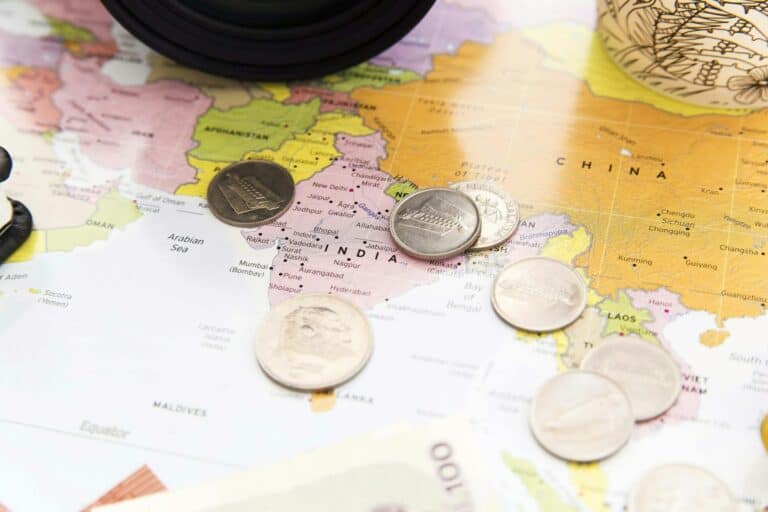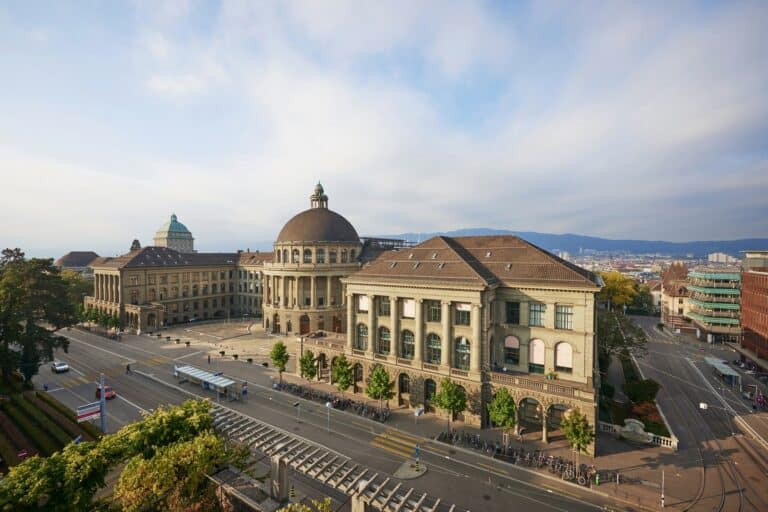The International Baccalaureate Diploma Programme (known simply as the IB, or BI in Spanish-speaking countries) is an educational organisation aimed at students between the ages of 16 to 19, known for its challenging curriculum. It was founded in 1968 and its main headquarters are located in Geneva, Switzerland. But what are other characteristics of this particular educational programme? What makes it so prestigious among schools and universities and at the same time so feared among many high school students? In this article, I would like to share with you my experience as a former IB student in Spain, and my opinions about the Diploma Programme. I would also like to thank my university classmate and fellow ex IB student Emma Boccardo for providing me with more details about the International Baccalaureate programme and sharing with me her experience of studying it in Italy.
A brief history of the origins of the IB:
The International Baccalaureate Organization was originally founded as a way of guaranteeing an even education for young people who had to immigrate to other countries with their families so that the educational curriculums of the new schools they had to enroll at would be similar to those they had studied at their home countries. However, the languages in which the IB is taught are limited exclusively to French, Spanish and English. Currently, there are many schools worldwide, both public and private, that offer the IB Diploma Programme. However, in order to offer the programme, a school must have been authorized by the IB council to do so, thus becoming an IB world school. In Spain, there are currently over 100 world schools who offer the International Baccalaureate. 12 of these schools are located in the Community of Madrid, of which only three of them are public/state schools. My experience took place in one of those three schools.
Differences between the Spanish “Bachillerato” and the IB curriculum:
The Spanish baccalaureate or “Bachillerato” would be the equivalent to America’s junior and senior years, and it’s not compulsory. Students must choose a certain modality to enroll. In Spain, there are about three different modalities of Bachillerato, and when I studied it, these were: the scientific modality (which could be subdivided into the “technological branch”, including physics, mathematics and technical design as its usual core subjects; and the “sanitary branch”, which usually includes biology and chemistry as the main subjects, often mathematics and physics as well), the social sciences and the humanities modality (the first with economy, geography and administration-oriented mathematics; and the latter with Greek and Latin as its main subjects), and the artistic modality. Depending on the school or institution, different modalities with a certain range of specific subjects are offered.
On the other hand, the International Baccalaureate Diploma Programme requires students to choose six subjects at SL (Standard Level) or HL (Higher Level), each one of them from each of these six different categories:
- Studies in language and literature: students usually choose to study their native language, although a wide range of languages may be offered, depending on the school.
- Language acquisition: a different language may be chosen for this category, but classical languages (Greek and Latin) may be included in some schools.
- Individuals and societies: in this category, students may choose subjects such as economics, history, geography…
- Experimental sciences: subjects such as biology, chemistry or physics, among others, may be chosen from this category.
- Mathematics: different courses in mathematical studies, with varying difficulty, may be chosen from here.
- The arts: in this category, students are free to choose between a wide range of subjects, such as music, dancing, drama, visual arts…
We should note, however, that this is the “original” IB Diploma Programme, which not all schools follow. In fact, some schools may require students to take up more than two languages, while others may not offer subjects in the category of arts and certain others impose another specific subject depending on the number of languages students have taken up… It really depends on the country and the school, so we will focus once more on the “classic” IB Diploma Programme model.
Depending on the set of subjects the student has chosen, he or she will have to complete different projects and assignments related to them and take special examinations on November or May (depending on the school and the country it is in). These exams are qualified with a specific score with numbers between 1 and 7, with 7 being the highest grade possible and 1 the lowest. The different grades students get in the exam are summed up in the end, and depending on the final punctuation, students may or may not be awarded the IB Diploma. However, there are other assignments and tasks that need to be taken into account and that may or may not provide the students with extra points and which we will develop later.
Generally, students are required to score at least 24 points in order to obtain the Diploma (the maximum is 45 points). However, it isn’t as simple as that. In order to be eligible for the diploma, a student must at least achieve a final score of 2/7 in Standard Level subjects and attain 3/7 in the final grade of Higher Level subjects. Also, the total sum of the grades you get in Higher Level subjects must be 12 or higher. For instance, if you got 4/7 in HL Biology and a 5/7 in HL Spanish but only a 2/7 in HL Math, you can’t be awarded the diploma because the total sum of your grades is only 11.
Also, in order to successfully complete the programme, IB students must:
- Write an extended essay of up to 4000 words investigating a topic related to a subject they are studying. The completion and passing of the extended essay imply the award of 1 point.
- Take a subject called “Theory of Knowledge”, usually shortened to TOK, which involves in itself several projects and must culminate in the writing of a special essay which will be assessed on a scale from A-E, with A being the highest mark possible. The writing of the essay and the attaining of a passing grade also implies the obtaining of 1 point for the student.
- Complete 150 hours of “Creativity, action and service” (CAS hours). This would include activities that provide students “opportunities for personal growth, reflection and personal challenge to help them become better citizens later”. The completion of the CAS hours is compulsory and, while it doesn’t contribute for extra diploma points, the failing of completing the CAS program makes a student automatically ineligible for receiving the IB Diploma (at least it was like that where I studied). In order to correctly register the completed CAS hours, students had to fill in a special form and obtain the activity’s organizer signature. Then, they should hand it to their school’s CAS coordinator.
The International Baccalaureate in Spain… is different:
…At least it is in most schools, students have to get prepared to kiss the possibility of choosing whichever subjects they’d like goodbye. In the school I studied at, depending on the modality you chose (IB students could choose either the technological or sanitary branch within the scientific modality; but when it comes to the “Letras” modality, a colloquial student term in Spain to refer to non-scientific studies, students only had the possibility of choosing social sciences), you had a series of imposed complementary IB subjects at an already determined level. That means that if you chose the sanitary modality, you would have to study HL Biology (which is expected), but you would also have to put up with SL Chemistry and HL Mathematics (which logically should be the other way round). Furthermore, students in the sanitary modality (the one I ended up choosing) would have to study a subject of the opposite modality (SL History for those in sciences per se; SL Environmental Systems for those in social sciences) and also have in common with the other students HL Spanish and SL English. The IB subject of TOK was also included in the schedule combined with the Bachillerato’s subject of Philosophy. So yes, IB students with this sort of schedule are not only studying the IB itself, but also the conventional Spanish Bachillerato, thus making us study some sort of “double degree.”
My own experience as an IB Student in Spain:
I can’t really speak about the efficacy of the “true” IB Diploma Programme (that would mean, without the extra load of work coming from the Spanish conventional Bachillerato) because it wasn’t really what I studied but, as far as I’m concerned, my IB experience was generally awful. I’ll explain you why.
Firstly, in order to become IB instructors, teachers must take a special training program that will enable them to teach IB subjects. So the logical thing would be to assume that all of our teachers had gone through that special course and were fully qualified to teach IB courses, right? Well, wrong. During our last year, there were at least two teachers who weren’t suitable to be IB instructors. In fact, the situation got so out of hand with one of them that the IB exam we had to take in May of the subject he taught was a general disaster. We hadn’t literally been taught anything about SL Chemistry. Not to mention that the whole situation could be viewed as educational fraud.
Furthermore, several of the IB’s general norms were visibly bent or even broken during my time at that school. Just to mention a few examples, the IB Commission has banned all scientific practices and experiments with animals, either living or dead. And yet, I remember myself on the day of my seventeenth birthday, wearing a pair of polyvinyl gloves and desperately trying to keep my breakfast down while eviscerating a sardine I had brought from home in order to “correctly analyze the shape and proportions of a fish’s internal organs”. We later had to hand in a labelled drawing of the fish’s guts (which didn’t count at all for the biology grade). Also, project deadlines were sometimes solemnly ignored: some students would turn in their papers late, and teachers would still admit them.
But the worst thing of all was the open and absolute partiality most teachers displayed towards the students. If you were lucky enough to get on their good side, then everything would work wonderfully for you; if for whatever reason they didn’t really like your face or your way of expressing yourself… well… let’s just say you would be in for some real struggle. Student’s grades were in many cases disproportionally inflated or lowered during my studies there, including mine. Most provisional grades teachers gave to my IB projects that were later sent abroad to be assessed by other IB teachers were either ridiculously high or low. It even got to a point in which my final TOK essay only got little more than a pass there and once the course ended and I received my final results I found out that whoever corrected it abroad found them to be one of the best in the class… crazy or what?
However, not everything was limited to toil and tears of frustration. The International Baccalaureate also had several good aspects, among them, the CAS programme, which I found to be indeed very enriching. I volunteered at several programs, including sports events, educational workshops and community service, and I noticed the benefits of it! I truly think that the CAS programme has helped me become a more independent and solitary person, and that was a very valuable experience for me.
I also enjoyed researching for my extended essay. Many ex IB students will think I’m mad for stating this, but I truly did. I got to choose my own topic (about English literature), and actually had fun reading all the books and articles I consequently had to study to gather information. Besides, my extended essay coordinator was lovely and always ready to help me. The only thing I didn’t like about the extended essay was that in the end, we were all obligated to sign an official IB document in which we had to reject our copyright and pass it to the IB Organization. So yeah, they are pretty much the owners of what we wrote now.
Would I recommend studying the IB in Spain?
Even though, as I have previously stated, not everything was a valley of bitterness, I personally think that my IB experience left a lot to be desired. The negative aspects ended up outweighing the positive ones. For starters, I believe that the IB alone is enough to be taken care of… there’s no need to squeeze the Spanish Bachillerato in and its consequential university entrance exams as well! In fact, our teachers were constantly pressuring us that, in the case, that time ended up catching with us; we should prioritize the conventional high school and its deriving exams. What happened, in the end, was that most students weren’t sufficiently prepared for the conventional university entrance exams, and didn’t perform as well as they could have. So much for the point of preparing us better for when we went to college…
Nevertheless, deep down I don’t really regret the IB for two main motives. The first being, it made me realize that sciences weren’t really my thing and that my true vocation and talents were more on the humanities side. I probably would have become very embittered if I had pursued further studies in which I’m not good at and that I don’t actually like that much.
And also, if there is one thing the IB truly taught me is how to successfully write papers and assignments for my university studies!
What about you? Are you an IB survivor as well? Do you know anybody who is? Please let us know and feel free to share your own experiences with us!
Recent Posts

For professionals with a few years' experience already, an MBA can be a great way of boosting your career prospects. From changing jobs or industries ...

Studying abroad for a semester or a full year can be an incredibly enriching experience. You'll get to experience a new culture, meet new people, and ...

If you're thinking of studying a technical subject like engineering at university, it's crucial that you choose a university that has a rigorous ...

